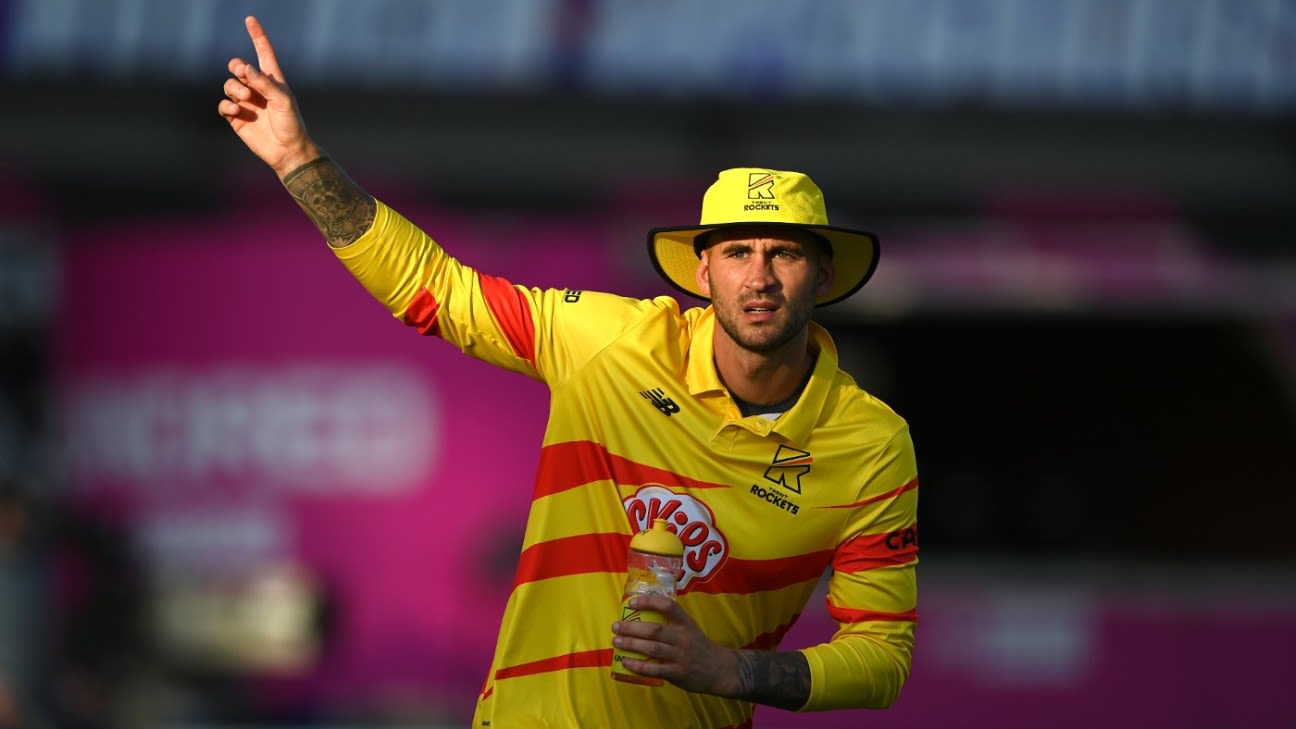
The official call came from Key, just a few days after the pair had discussed why Hales did not make the original cut - a conversation instigated by Hales. Buttler also spoke to Hales to inform him the rest of the squad were receptive to his inclusion and that, above all else, the limited-overs captain was pleased to have him back.
Stokes' response was to be expected. Having referred to Hales as "his friend at the time" in his documentary Ben Stokes: Phoenix from the Ashes when revisiting the Bristol street fight in September 2017, any questions on the matter during press junkets were quashed by the attending PR. But the overarching feeling is that Hales gives England the best chance of success in Australia.
Since picking up the last of his 141 caps against West Indies on March 10, 2019, Hales has been one of the best short-form batters in the world. His 4,587 T20 runs are second only to Babar Azam (4,639). Even more impressive is the fact that, among the 16 batters who have scored over 3,000 runs during this period, Hales' strike rate is the highest (152.74), and the only above 150. The experience along from his work for Nottinghamshire, Trent Rockets, Sydney Thunder, Islamabad United, Barbados Tridents and Durban Heat will be invaluable. In many ways, he is a luxury - a reliable, world-class plug-and-play option in the most volatile format.
Form, however, has never been the issue, even if Key cited it as the only deciding factor when the original squad was picked. Even Eoin Morgan, the sternest advocate of Hales' time in the wilderness, never doubted his qualities out in the middle. The issue throughout was "the huge breakdown in trust" and "complete disregard" for the values that Morgan's team had taken four years to instil.
Morgan always maintained that time would be the healer, and perhaps it has been, albeit in a hyper-accelerated fashion. For it is hard not to wonder at the high-profile and coincidental sequence of events that got us to this point.
In the midst of all that is Buttler's ascension to the white-ball captaincy, which has ultimately bound these factors together and brought the recall to reality. He and Hales were very good friends, and even though the relationship soured in 2019, Buttler still harbours plenty of affection.
The main friction between Hales and the England group came when a statement was released upon the second failed drugs test that stated he would be "unavailable for selection for personal reasons". The ECB directive was for discretion, but many, including Buttler, were concerned Hales was struggling with other issues and required time away from the game.
Indeed, there will be a degree of wariness from certain figures at the ECB now that Hales is back in the fray. There is an unshakeable sense that trouble seems to find him.
Evidently, Buttler is not one of them. As such, this could rank as the most important call he makes under his tenure. In its own way, it feels like a decision that unequivocally makes this ODI team his own. After just four wins in 12 white-ball matches as full-time skipper, there was a worry Buttler was struggling to assert himself on a side coming to the end of its life cycle, and one that still carried the hallmarks of his predecessor. Hales' presence gives Buttler a little more ownership.
As for acceptance, runs will be the bricks, steel and mortar of any and all the bridges Hales might need to rebuild. That, really, is the crux of the matter. Above all else, the management group, the players and Buttler trust his cricket.
Vithushan Ehantharajah is an associate editor for ESPNcricinfo
#T20 #World #Cup #Alex #Hales #England #return #define #Jos #Buttlers #captaincy
https://www.globalcourant.com/t20-world-cup-why-alex-hales-england-return-could-define-jos-buttlers-captaincy/?feed_id=21128&_unique_id=631949ae21dcc